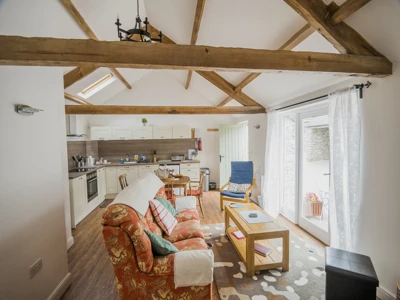When you use a mortgage to buy a house, as part of the process, your lender will arrange a mortgage valuation. This is to ensure that the property is worth the amount they’re lending you to buy it.
Mortgage valuations are conducted by a surveyor who is a member of the Royal Institute of Chartered Surveyors (RICS). Only a surveyor who is a member of RICS can carry out a mortgage valuation.
What does a mortgage valuation include?
A mortgage valuation usually involves a brief inspection of the property which takes the surveyor less than twenty minutes. The surveyor will then prepare a short report for your mortgage lender, which confirms the valuation figure, along with comparable properties of a similar style in the nearby area which have recently sold in order to support the surveyor’s valuation figure. Some lenders will provide borrowers with a copy of the whole valuation report or an extract from it, others don’t provide anything at all, so you’ll need to check to see what will apply in your individual case. Also, some lenders don’t charge for a mortgage valuation but others do, so it’s best to check with your mortgage adviser if this is something you’ll have to pay for.
Who is the mortgage valuation for?
The main thing to bear in mind is that a mortgage valuation is carried out solely for the benefit of your mortgage lender, and not on your behalf as the borrower. Therefore, it won’t provide you with any details of any property defects, for example if there is any evidence of subsidence or an issue with the roof or rainwater goods which could be a significant cost to repair. For that sort of detail, you’ll need another type survey that you’ll have to pay separately for.
Different types of surveys
There are three types of home survey that can be commissioned on your behalf (the buyer) in order to determine the condition of a property. As with a mortgage valuation, home surveys can only be carried out by a surveyor who is a member of RICS. The three types of home surveys are:
1. Level One survey (also called a RICS Condition Report)
2. Level Two survey (also called a RICS HomeBuyer Report)
3. Level Three survey (also called a RICS Building Survey)
These vary in the level of detail that the Surveyor includes in each, but broadly speaking, a Level One survey is the most basic and the Level Three survey is the most detailed.
If you decide that you’d like to have a home survey in addition to your mortgage survey, it’s best to mention this to your mortgage adviser when you initially apply for a mortgage. That’s because it may be possible for the surveyor who conducts the mortgage valuation to also undertake your home survey, although this isn’t necessarily always the case. If not, it may be that you’ll have to find another surveyor and arrange your home survey yourself. You can find a list of surveyors in your local area by visiting the RICS website at www.ricsfirms.com
Important information
Your home may be repossessed if you do not keep up repayments on your mortgage.
There may be a fee for mortgage advice. The actual amount you pay will depend on your circumstances. The fee is up to 1% but a typical fee is 0.3% of the amount borrowed.

